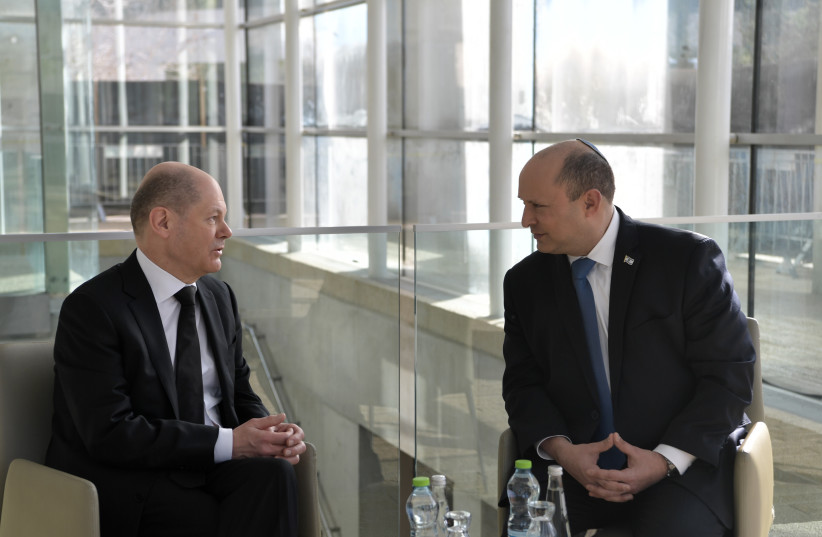Israelis, Germans agree Germany should play mediator role in Middle East
Israelis, Germans agree Germany should play mediator role in Middle East The Jerusalem Post A Hebrew University survey ahead of new German Chancellor Olaf Schotz’s first visit to Israel found that Jews and Germans both agree that Germany should act as a mediator between Israel and other countries in the Middle East. According to the over 2,000 respondents – roughly 1,000 from each country – a majority in both countries expect the new government in Germany to continue Chancellor Angela Merkel's approach towards Israel to continue, including her assertion that ensuring Israel’s existence is in Germany’s national interest. The understanding and overall impression of one another’s country was tied to demographics: for instance, the more religious the respondent in Israel, the more likely he/she was to hold disdain for Germany, who was the Axis leader in World War II. Respondents also agreed that criticism of Israel is not always an antisemitic act, as 66% of German respondents think that Israel can be criticized without any connection to antisemitic attitudes.

Published : 3 years ago by By JERUSALEM POST STAFF in
A Hebrew University survey ahead of new German Chancellor Olaf Schotz’s first visit to Israel found that Jews and Germans both agree that Germany should act as a mediator between Israel and other countries in the Middle East.
Schotz, who arrived to Israel on Tuesday on his first official visit since taking over as the German Chancellor, had to shorten his trip to just one day amid the Ukraine-Russia war.
According to the over 2,000 respondents – roughly 1,000 from each country – a majority in both countries expect the new government in Germany to continue Chancellor Angela Merkel's approach towards Israel to continue, including her assertion that ensuring Israel’s existence is in Germany’s national interest.
While cooperation between the two nations was celebrated, the people’s lack of knowledge about each other’s countries was highlighted in the survey results. 30% of the Israeli respondents and merely 13.6% of the German respondents have actually visited each other's country – and many of those were repeat visitors.
DEMONSTRATORS RALLY in solidarity with Israel and against antisemitism, in front of the Brandenburg Gate in Berlin, in May. (credit: Christian Mang/Reuters)
The understanding and overall impression of one another’s country was tied to demographics: for instance, the more religious the respondent in Israel, the more likely he/she was to hold disdain for Germany, who was the Axis leader in World War II. Conversely, the older the German respondents were, the more likely they were to disapprove of Israeli ties. Moreover, German respondents had difficulties distinguishing between Israeli and Jewish culture.
Further, 58% of Germans agree that antisemitism is currently a problem in their country. While most respondents (70.1%) said they saw antisemitism emanate from all across Germany, 72% said they primarily see it emanating from the far right and 58% said it is directed from the Muslim minority.
Respondents also agreed that criticism of Israel is not always an antisemitic act, as 66% of German respondents think that Israel can be criticized without any connection to antisemitic attitudes. While a majority in Israel agree, many feel there is often a link between the two. Almost half of the Arab respondents from across both countries do not make this connection at all.
Gisela Dachs, a professor at HU’s European Forum and principal author of the survey, believes that Israel and Germany are now at a critical stage in their bilateral relationship as a younger generation begins to take over the reins of every aspect of life in both countries. "We need to look to the future. History is a strong pillar but it fades away. The challenge is to build a shared future between Israel and Germany that is not only founded on a shared past… once you can identify a specific lack of knowledge, then you are in a better position to address it."
Topics: Germany, Israel
